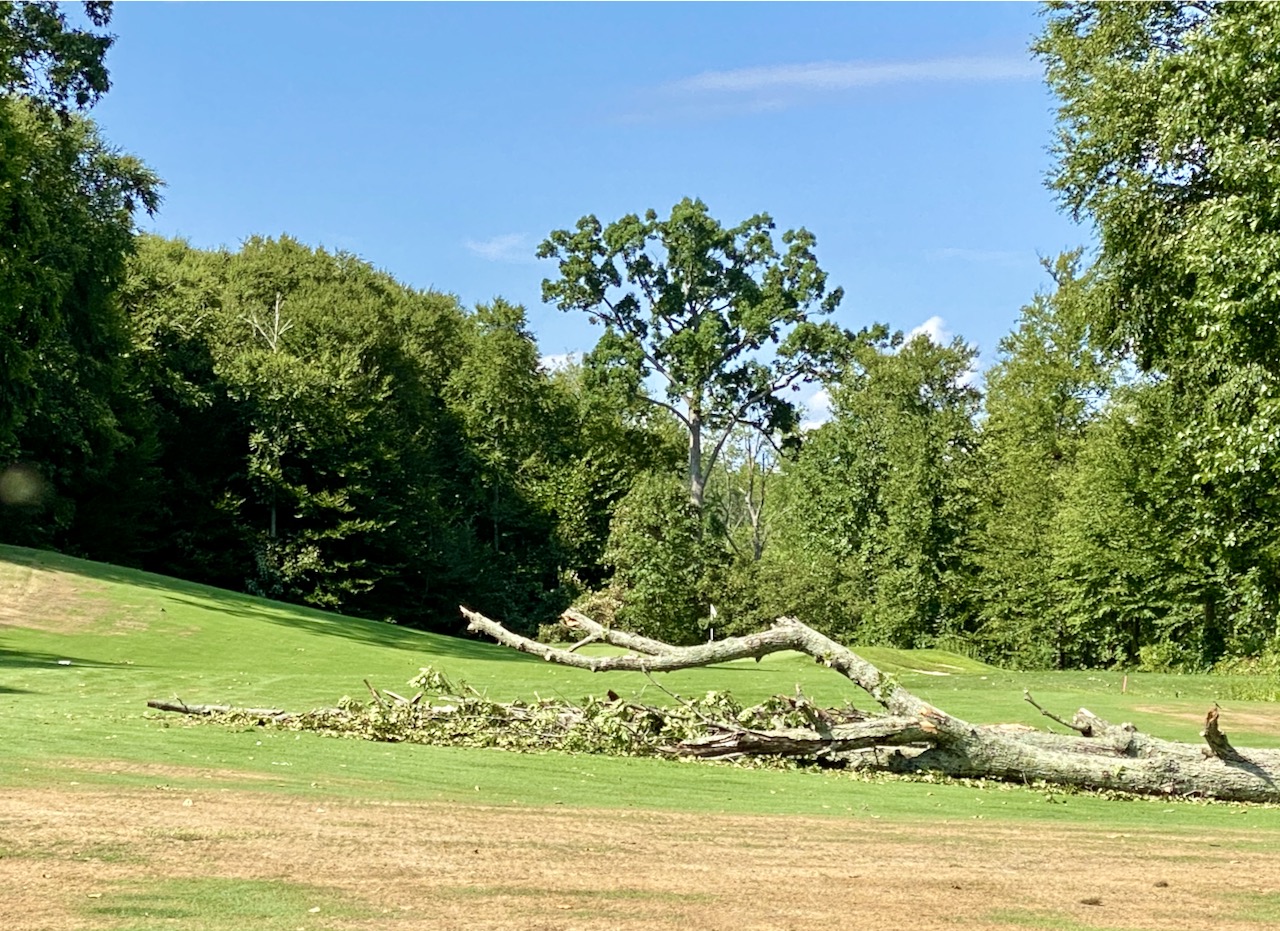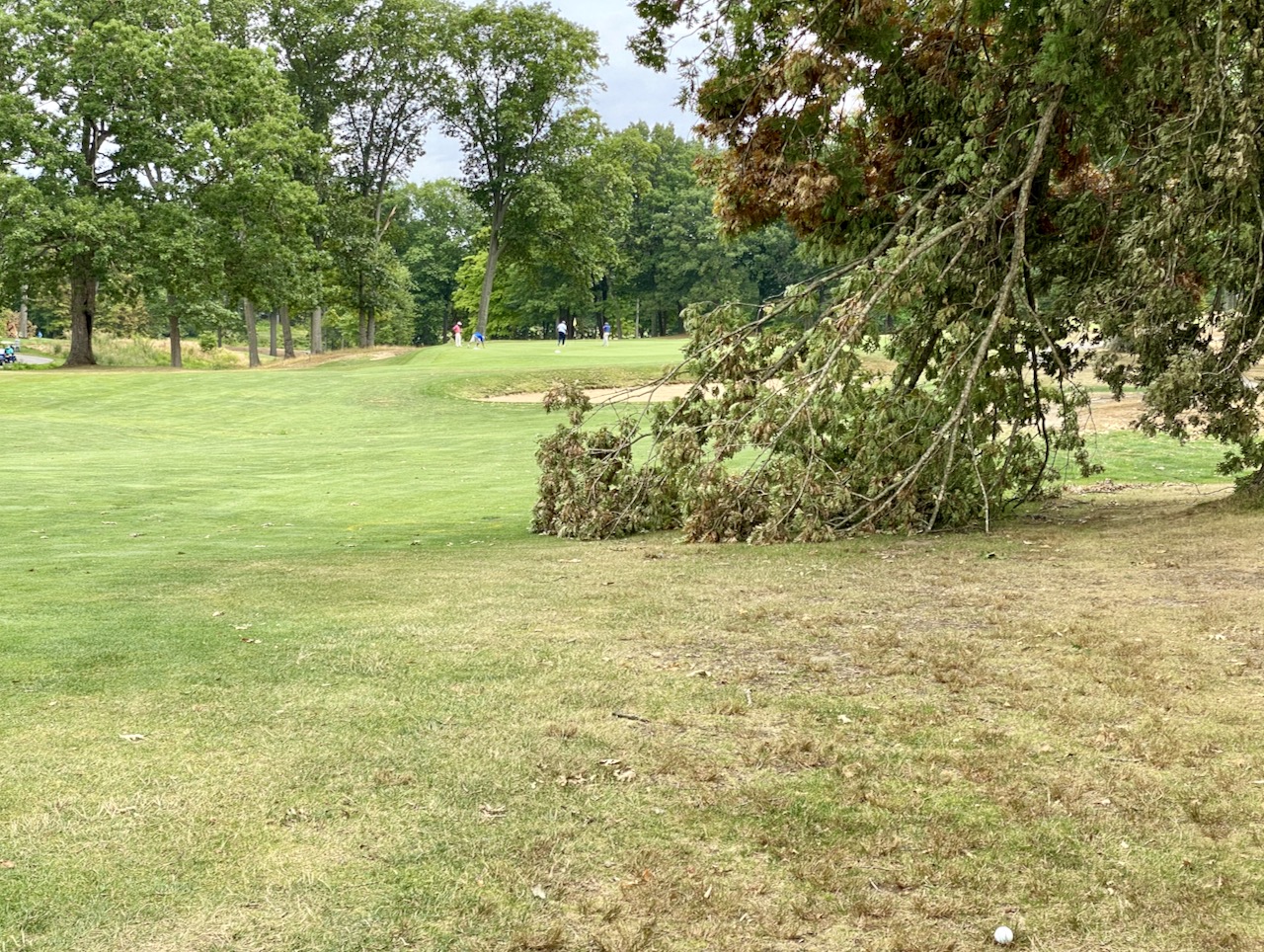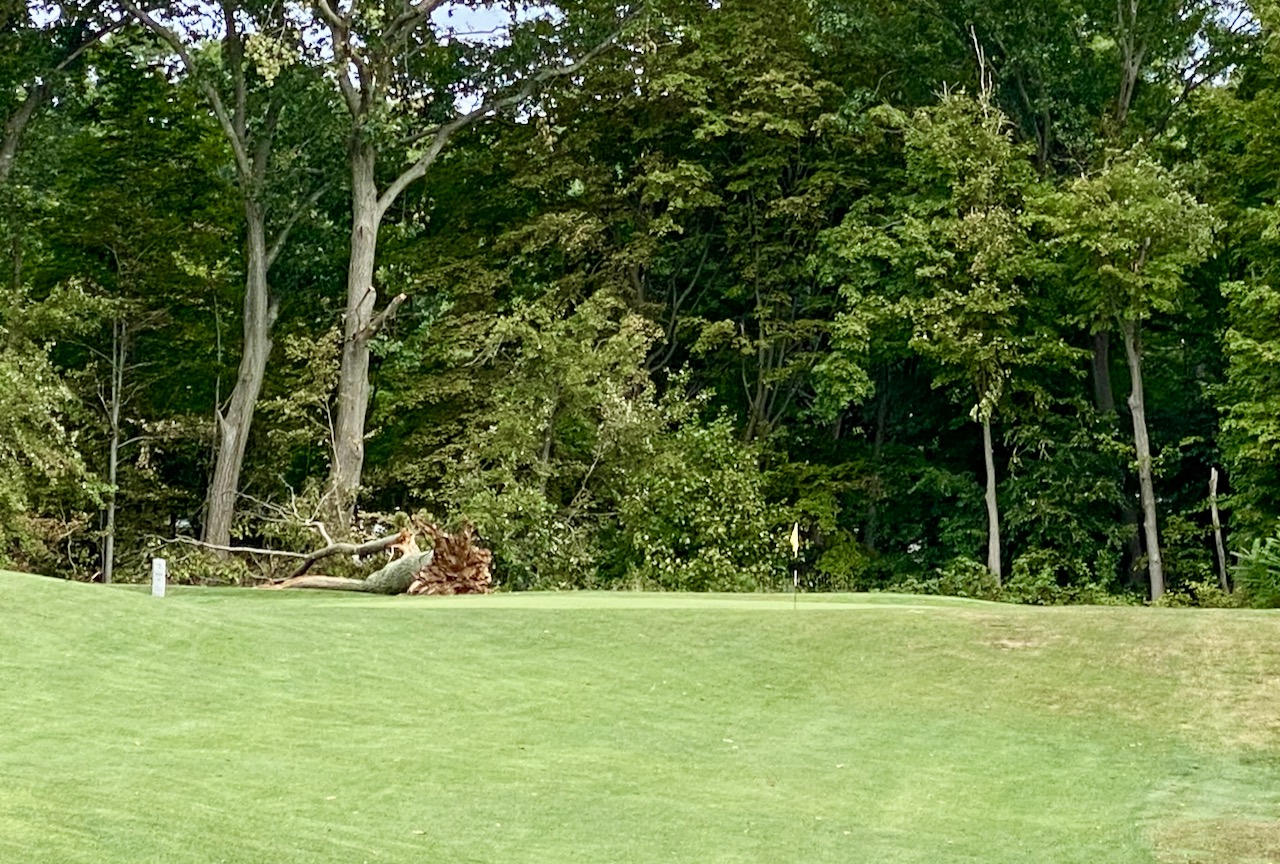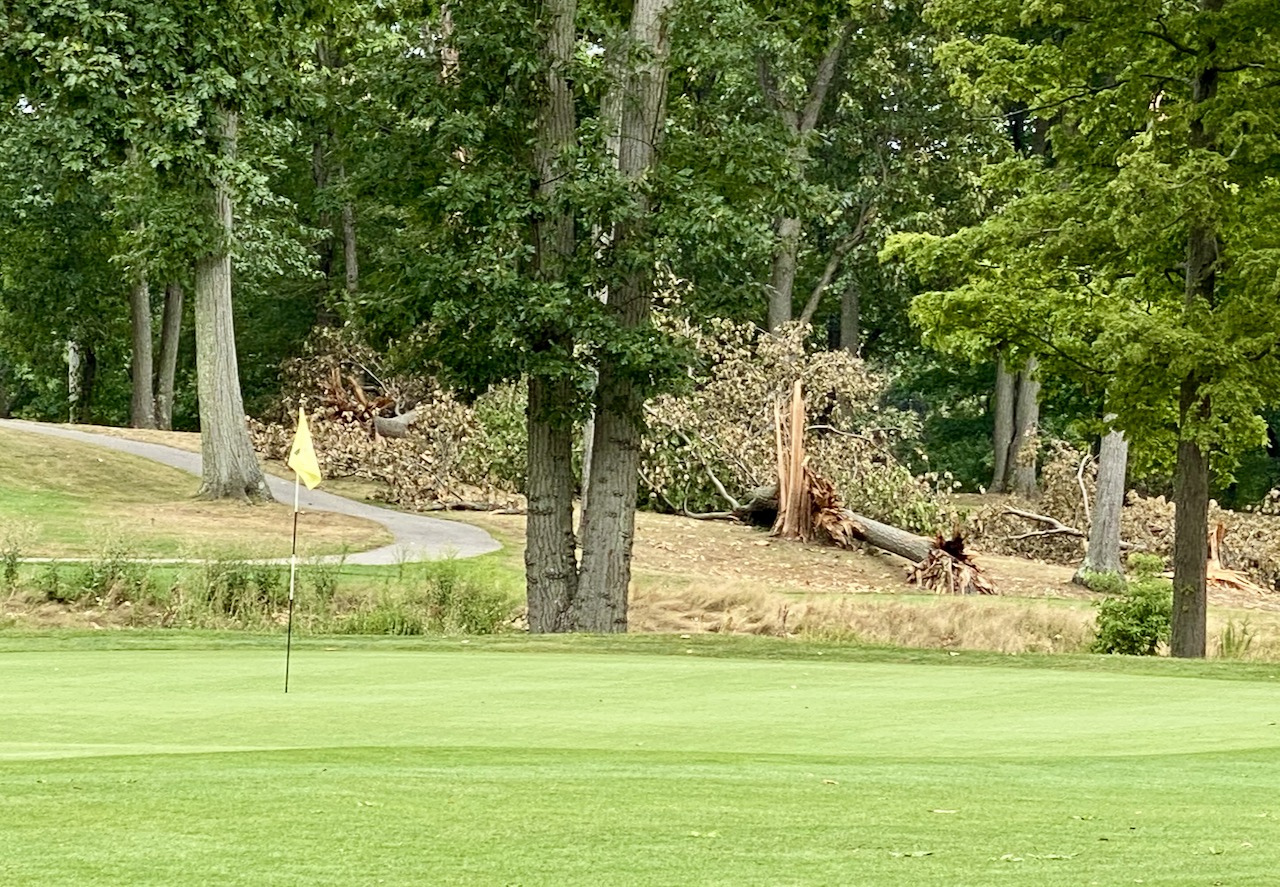As if the pandemic was not enough challenge for Connecticut golf courses, the remnants of a hurricane with a confusing name slammed into the heart of the state taking down trees and power lines and making life even more miserable for a week. Your correspondent and his wife were without power for five days.
Taking a cue from the besieged U.S. Postal Service, neither downed trees nor power lines nor 90-degree weather was going to keep me from playing golf even before the power was turned back on. My friend Peter and I booked an afternoon tee time at Wintonbury Hills, a Pete Dye course in Bloomfield, CT, that plays through gently sloped fairways of a former farm. Dye "donated" his design services to Bloomfield in the early 2000s, and the course still ranks as one of the best of the public options in northern Connecticut. Power was out at Wintonbury, and I was warned that my electric cart could run out of juice by the end of the round. (Thankfully, it didn't.)
Having driven around my home town shortly after the storm passed, I noted that many of the larger downed trees were cleaved almost in half, from top to bottom. The worst damage seemed to be in small, separated areas, implying to this armchair meteorologist that mini-tornadoes may have been spawed by the storm. At Wintonbury, I noted that a few medium-sized trees had been toppled but mostly small trees and limbs were down on the course -- until we came to number 14, where a huge tree covered half the fairway. I hit my best drive of the day almost to the tree but was able to play over the newly formed hazard. An extra hazard in the 14th fairway at Wintonbury Hills in Bloomfield, CT.
An extra hazard in the 14th fairway at Wintonbury Hills in Bloomfield, CT.
My favorite public course in Connecticut, Keney Park in Hartford, had no such luck. Closed for five days because of a lack of power and many downed trees, I played there on Thursday this week and was stunned at how many large trees had been felled by the storm. The crews had done a great job of removing those that had blocked play and pushing aside many of the others for later cleanup. Only twice was a downed tree or branch in play for me at Keney Park this week; here, for my approach shot on #7 (I played it), and on #10, where my tee shot on the par 5 wound up in a pile of brush at the edge of the fairway. (I took a drop.)
Only twice was a downed tree or branch in play for me at Keney Park this week; here, for my approach shot on #7 (I played it), and on #10, where my tee shot on the par 5 wound up in a pile of brush at the edge of the fairway. (I took a drop.)
We think that hurricanes and the ensuing damage is an issue only for coastal locations in the Carolinas and Florida, but those of us in New England have lived through some challenging post-hurricane effects in recent years. (Irene inundated a large swath of Vermont and New Hampshire in late August 2011.) If you are looking forward to life near a beach in the Carolinas, then go for it. No place is perfect in terms of climate -- well, some people say San Diego is but, oh, the cost of living! To quote the worldly philosopher of Saturday Night Live fame, Roseann Roseannadanna (Gilda Radner), "It's always something."
 Top, tree damage behind the first green at Keney Park. Bottom, a sample of the scene on much of the front nine. Oddly, the back nine was largely unaffected.
Top, tree damage behind the first green at Keney Park. Bottom, a sample of the scene on much of the front nine. Oddly, the back nine was largely unaffected.
























